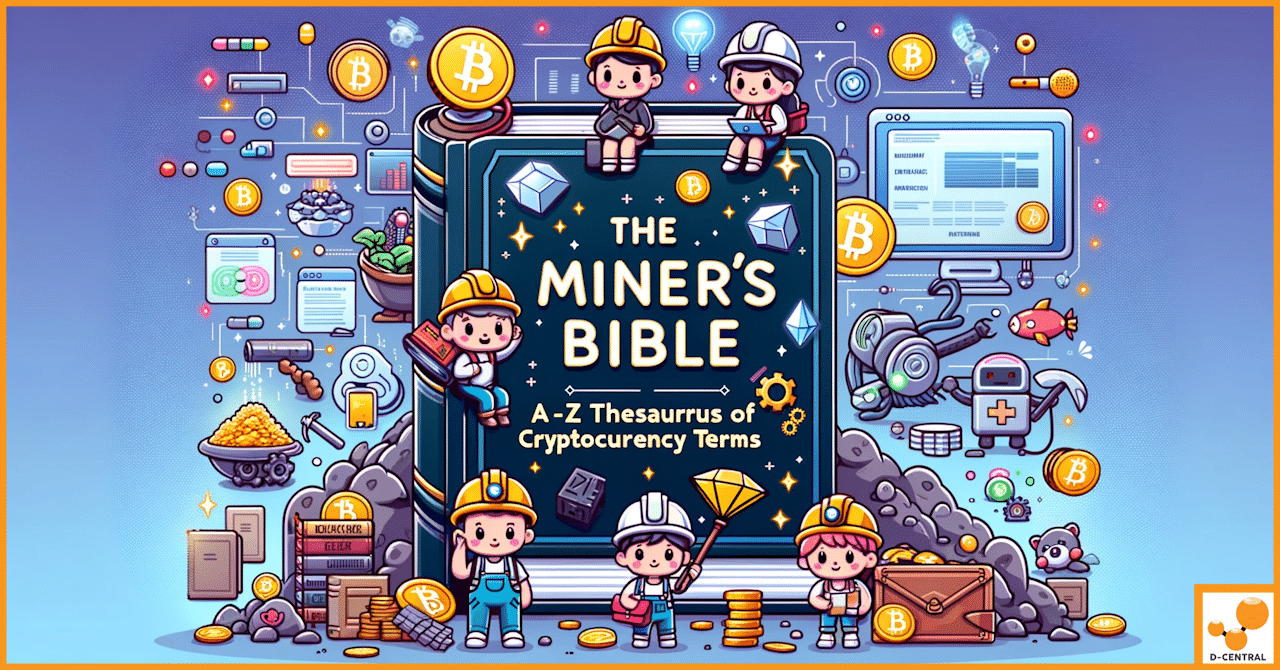
The Miner’s Bible: A-Z Thesaurus of Cryptocurrency Mining Terms
Cryptocurrency mining has rapidly evolved from a niche hobby to a complex and significant industry, integral to the functioning of
4479 Desserte Nord Autoroute 440, Laval, QC H7P 6E2

In a recent unprecedented event, F2Pool, a leading Bitcoin mining pool, found itself at the center of a heated debate. The pool returned an accidentally overpaid transaction fee of 19.8 BTC to Paxos, a crypto services firm. While this act was celebrated by many as a demonstration of ethical conduct, it also ignited a series of questions and controversies within the Bitcoin community.
This incident brings us face-to-face with a critical question: Who actually holds the reins when it comes to the blocks in Bitcoin mining? Is it the mining pool operators or the individual miners, also known as hashers, who contribute their computing power? The answer to this question has far-reaching implications for the entire Bitcoin ecosystem.
Understanding the power dynamics within mining pools is crucial for several reasons. It not only affects the distribution of rewards but also has implications for censorship resistance and the decentralization ethos that Bitcoin was built upon. As the F2Pool and Paxos incident has shown, these dynamics can influence real-world decisions that have ethical and financial repercussions.
On September 10, 2023, Paxos, a well-known crypto services firm, made an error that sent shockwaves through the Bitcoin community. While attempting to send a relatively small amount of 0.074 BTC, Paxos accidentally paid a staggering transaction fee of 19.8 BTC, equivalent to about $520,000 at the time. This fee was the highest ever paid on the Bitcoin network and was almost 480,000 times the average fee at that moment.
The miner who received this windfall was none other than F2Pool, one of the largest and oldest Bitcoin mining pools in the world. Under the existing rules of the Bitcoin network, F2Pool had every right to keep the fee. However, after verifying that the overpayment was indeed a mistake, F2Pool chose to return the entire amount to Paxos five days later.
F2Pool found itself in an ethical quandary. On one hand, they could have kept the fee, as there is no rule or obligation within the Bitcoin network to return such fees. On the other hand, returning the fee was seen as an ethical obligation, especially after confirming that it was a mistake on Paxos’ part. F2Pool chose the latter, setting a precedent that was both lauded and criticized.
The decision to return the fee sparked a hot debate within the Bitcoin community. Some argued that F2Pool’s action was a testament to the integrity and trustworthiness of Bitcoin miners. Others contended that the decision set a dangerous precedent, undermining the principles of immutability and finality that are foundational to blockchain technology. This debate exposed differing views on what is considered ethical and fair, and it raised questions about who should have the final say in such matters.
Bitcoin mining is far from a risk-free endeavour. Individual miners, commonly known as hashers, invest significant amounts of money in specialized mining hardware. They also incur ongoing costs for electricity and maintenance. These investments are made with the expectation of earning rewards through the mining process, but there’s no guarantee of consistent returns. The volatility of Bitcoin’s price and the ever-increasing difficulty of mining algorithms add layers of risk.
Despite taking on these risks, individual miners often find themselves with little to no control over key decisions, especially when they contribute their hashing power to mining pools like F2Pool. Most mining pools operate on robust reward systems like FPPS (Full Pay-Per-Share), PPLNS (Pay Per Last N Shares), or PPS+ (Pay Per Share Plus). In these systems, the pool operators hold the decision-making power, including how to handle unusually large transaction fees, like the one from Paxos.
The F2Pool and Paxos incident serves as a stark reminder of the real-life implications of this lack of control. While F2Pool’s decision to return the overpaid fee was ethically praised by many, it also raised questions about the fair distribution of rewards among individual miners who contributed to mining that specific block. Shouldn’t they have a say in what happens to such windfalls?
Mining pools employ various reward systems to distribute earnings among their contributors. The most common among these are FPPS (Full Pay-Per-Share), PPLNS (Pay Per Last N Shares), and PPS+ (Pay Per Share Plus).
The F2Pool and Paxos incident brings into focus how different reward systems could have handled the situation differently:
The centralized nature of most current mining pool reward systems puts individual miners at a disadvantage, limiting their say in significant decisions. This is especially evident in cases like the F2Pool and Paxos incident, where a large sum was at stake. Empowering individual miners with more decision-making authority not only aligns with the decentralized ethos of the Bitcoin network but also ensures a fairer distribution of rewards.
Centralized decision-making poses a threat to the foundational principles of the Bitcoin network—censorship resistance and decentralization. When a single entity, like a mining pool operator, has the power to make unilateral decisions, it opens the door for potential censorship and manipulation. This centralization is antithetical to the very essence of blockchain technology, which aims to distribute power among its participants.
By moving towards more decentralized decision-making processes, we can strengthen the censorship-resistant nature of the network. It would also make the system more robust against single points of failure or control, thereby enhancing its overall security and integrity.
StratumV2 is an emerging mining protocol designed to address many of the issues inherent in current centralized mining pools. Developed as an upgrade to the original Stratum protocol, StratumV2 offers a range of features aimed at enhancing efficiency, security, and most importantly, decentralization. Some of its key features include:
StratumV2 is a game-changer when it comes to empowering individual miners. By allowing miners to have a say in transaction selection through job negotiation, it gives them a level of control that was previously only available to mining pool operators. This is particularly relevant in situations like the F2Pool and Paxos incident, where a collective decision could have been more equitable.
Moreover, the multi-stratum support ensures that miners are not tied to a single pool, thereby promoting competition among pools and reducing the risk of centralization. This aligns perfectly with the principles of decentralization and censorship resistance, making the Bitcoin network more robust and democratic.
The F2Pool and Paxos incident is not an isolated case; there have been other instances where the power dynamics within mining pools have been called into question. For example:
The F2Pool and Paxos incident serves as a vivid illustration of the complex power dynamics at play within Bitcoin mining pools. While mining pool operators like F2Pool have the final say in significant decisions, such as how to handle unusually large transaction fees, individual miners often find themselves with little to no control. This centralized decision-making process not only raises ethical questions but also poses risks to the foundational principles of the Bitcoin network, such as decentralization and censorship resistance.
As we’ve explored, the need for a more decentralized approach is evident. Emerging protocols like StratumV2 offer promising solutions by empowering individual miners with greater control over the mining process. By adopting such technologies and governance models, we can make strides towards a more equitable and democratic mining ecosystem.
For individual miners, the call to action is clear: educate yourselves about the different mining pool reward systems and consider pools that offer block template decision-making processes. For mining pool operators, it’s time to reevaluate your governance models and consider implementing more decentralized and transparent systems.
For a deeper dive into decentralized mining solutions and to empower your mining journey, consider partnering with D-Central Technologies today.
What happened in the F2Pool and Paxos incident?
Paxos, a crypto services firm, accidentally overpaid a transaction fee of 19.8 BTC (around $520,000 at the time) instead of the intended fee of 0.074 BTC. The overpaid fee was received by Bitcoin mining pool F2Pool, who, after verifying the error, returned the entire fee to Paxos.
How did the F2Pool and Paxos incident spark controversy?
While F2Pool was lauded by many for their ethical conduct, some in the Bitcoin community argued that the decision undermined the principles of immutability and finality foundational to blockchain technology. This sparked a debate over what is considered ethical and fair, and who should have the final say in such situations.
What are some common reward systems in mining pools?
Mining pools commonly employ reward systems like FPPS (Full Pay-Per-Share), PPLNS (Pay Per Last N Shares), or PPS+ (Pay Per Share Plus). However, in most of these systems, the pool operators hold the decision-making power.
How is StratumV2 changing power dynamics in Bitcoin mining?
StratumV2 is a developing mining protocol that is aimed at decentralizing decision-making in mining pools. It allows miners to choose which transactions to include in a block and enables miners to connect to multiple pools simultaneously, thereby reducing the risk of centralization and enhancing efficiency and security.
Why is decentralized decision-making important in Bitcoin mining?
Decentralized decision-making empowers individual miners, aligns with the decentralized ethos of the Bitcoin network, and ensures a fairer distribution of rewards. It also strengthens the censorship-resistant nature of the network and enhances its overall security and integrity.
What actions can individual miners and mining pool operators take?
Individual miners should educate themselves about the different mining pool reward systems and consider pools that offer block template decision-making processes. Mining pool operators should reevaluate their governance models and consider implementing more decentralized and transparent systems.
DISCLAIMER: D-Central Technologies and its associated content, including this blog, do not serve as financial advisors or official investment advisors. The insights and opinions shared here or by any guests featured in our content are provided purely for informational and educational purposes. Such communications should not be interpreted as financial, investment, legal, tax, or any form of specific advice. We are committed to advancing the knowledge and understanding of Bitcoin and its potential impact on society. However, we urge our community to proceed with caution and informed judgment in all related endeavors.
Related Posts

Cryptocurrency mining has rapidly evolved from a niche hobby to a complex and significant industry, integral to the functioning of

In the ever-evolving landscape of digital currencies, Bitcoin stands as a pioneering force, a beacon that has illuminated the path

In the dynamic world of cryptocurrency mining, the only constant is change. From the early days of Bitcoin, when hobbyists